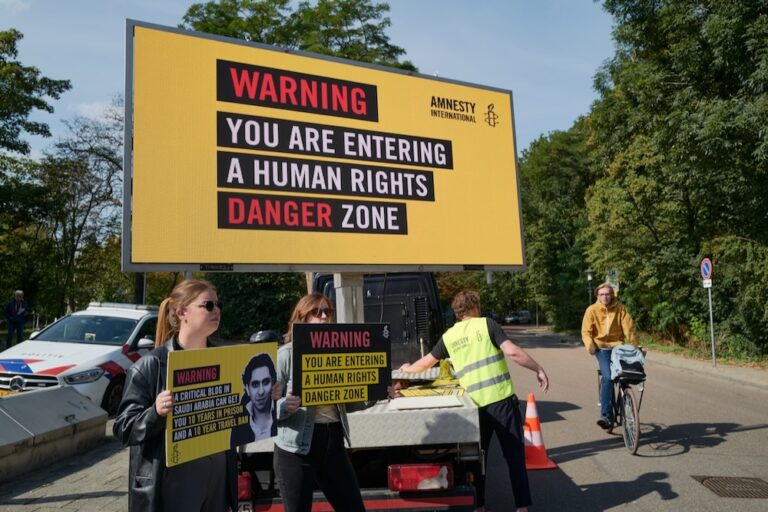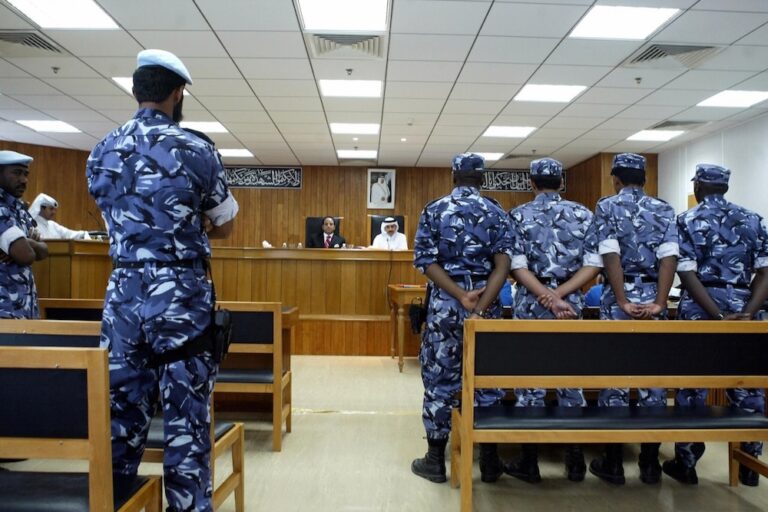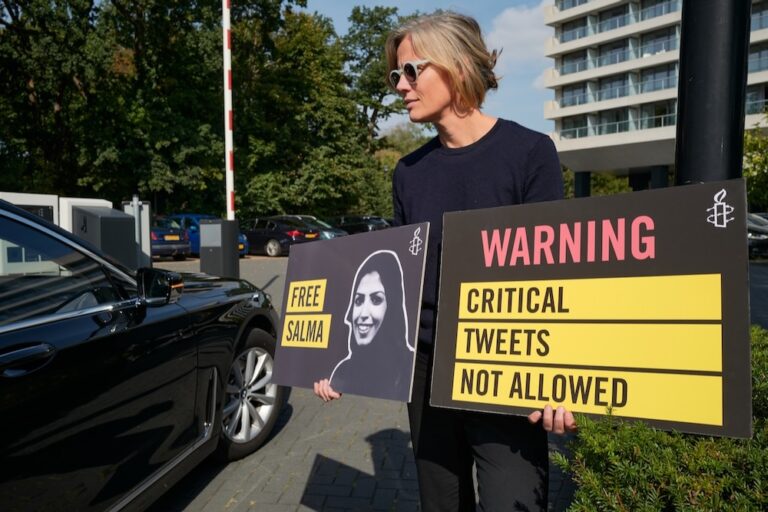The proposal would create a "legal veneer" for unlawful practices and lumps peaceful political opposition together with violent acts, says the organisation.
(Human Rights Watch/IFEX) – Beirut, August 2, 2011 – Saudi Arabia’s King Abdullah should withdraw a draft counterterrorism law from consideration by the cabinet because it would facilitate serious human rights violations, Human Rights Watch said today in a letter to the king. Human Rights Watch urged the government to consult with international human rights experts to draft a new counterterrorism law that would protect rather than infringe on basic rights.
“The draft counterterrorism law is trying to enshrine as legal the Saudi Interior Ministry’s unlawful practices,” said Christoph Wilcke, senior Middle East researcher at Human Rights Watch. “It lumps peaceful political opposition together with violent acts and ensures that the accused won’t get a fair trial.”
Human Rights Watch received a copy of the draft law, the Penal Law for Crimes of Terrorism and Its Financing, on July 22, 2011, from a source who indicated that it was “in the last stages of discussion.” The Security Committee of Shura Council, Saudi Arabia’s appointed parliament, which exercises limited legislative functions, passed a slightly amended version of the draft law on June 26. Shura Council changes are non-binding recommendations for the Council of Ministers, which drafts, enacts, and enforces the law.
The draft law seriously undermines human rights protections in four key areas, Human Rights Watch said. It contains an extremely vague and overbroad definition of terrorism, places unwarranted restrictions on the rights to free expression and assembly, grants excessive police powers without judicial oversight, and infringes on the rights to due process and a fair trial.
The draft law’s definition of terrorism makes no mention of internationally recognized elements, namely violence or other acts intended to instill terror in the general population to force the state to act in a certain way. Rather, the definition refers to vague and overbroad notions of “shaking the security of society or the stability of the state” and “infringing upon the interests of the kingdom.”
Several articles in the draft law unduly restrict the rights to expression and assembly, Human Rights Watch said. The draft includes as terrorist crimes “describing the king – or the crown prince – as an unbeliever, doubting his integrity, defaming his honesty, breaking the [oath of] loyalty [to him], or inciting such [acts].”
( . . . )
The draft law ignores the international best practices elaborated over the past five years by the United Nations special rapporteur on promoting and protecting human rights while countering terrorism.
The law could easily be used to prosecute and jail peaceful dissidents, Human Rights Watch said. In one prominent example, Saudi domestic intelligence forces on February 2, 2007, arrested a group of well known political reformers in Jeddah, and have detained them since. In early 2011, the prosecution service released its charge sheet, which accuses the men, among other things, of “opposing the ruler, withdrawing the hand of obedience by [working for the] downfall of the general rules of Sharia that God has created for the leader of Muslims, challenging the contract of loyalty to him, defaming the protection of the rulers of this country and the belief of the clerics of this country.”
The trial judge has barred Basim ‘Alim, the lawyer for some of the 16 defendants, from attending some sessions, ‘Alim said in a Twitter message. Human Rights Watch said that the proposed draft law would give such arbitrary practices by the authorities a veneer of legality.
Human Rights Watch called on governments that have strong counterterrorism relations with Saudi Arabia, including the United States, to urge the king to formulate a new law consistent with human rights or to reduce significantly their cooperation with the kingdom’s authorities.
“The Saudi draft counterterrorism law is draconian in spirit and letter, and there is every reason to fear that the authorities will easily and eagerly use it against peaceful dissidents,” Wilcke said. “No foreign government can cooperate in good faith with Saudi counterterrorism officials operating on the basis of a law like this.”


